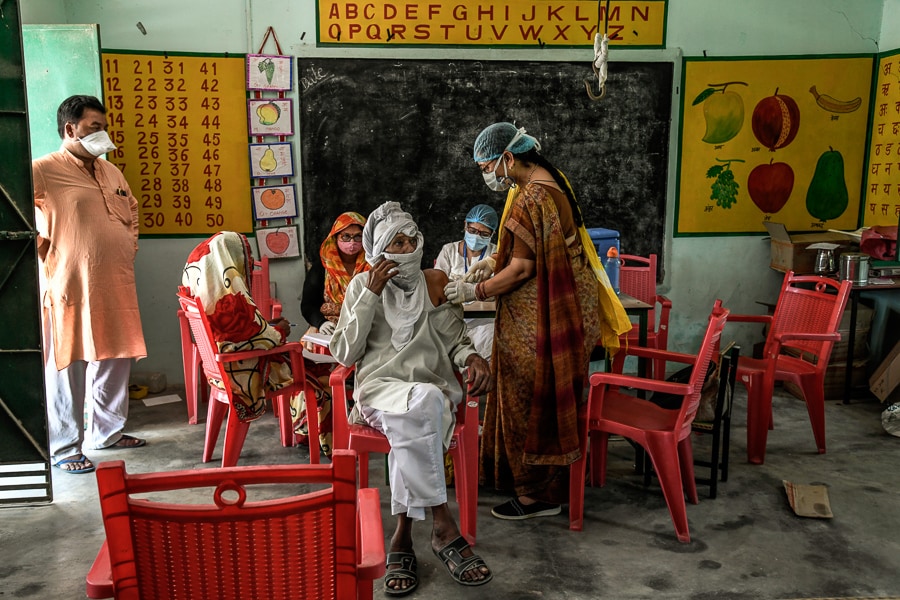
India scripted a spectacular Covid-19 vaccination drive. Is it losing steam now?
India's progress represents a significant step toward ending the crisis globally and stands as an important political win for Prime Minister Narendra Modi, whose government came under heavy criticism for failing to prepare for a devastating second wave that struck earlier this year
 FILE — A man receives a dose of COVID-19 vaccine in Sultanpur, a village in the Indian state of Uttar Pradesh, on June 4, 2021. India’s coronavirus crisis, which was killing thousands of people a day just seven months ago, has eased after the nation’s leaders revamped their policies and dramatically ramped up their vaccination drive.
FILE — A man receives a dose of COVID-19 vaccine in Sultanpur, a village in the Indian state of Uttar Pradesh, on June 4, 2021. India’s coronavirus crisis, which was killing thousands of people a day just seven months ago, has eased after the nation’s leaders revamped their policies and dramatically ramped up their vaccination drive.
Image: Atul Loke/The New York Times
NEW DELHI — India’s coronavirus crisis, which was killing thousands of people a day just seven months ago, has eased after the nation’s leaders revamped their policies and dramatically ramped up their vaccination drive.
Now, as India celebrates the delivery of its 1 billionth dose, a feat that until recently seemed improbable, public health experts are sounding a new warning: The turnaround is losing steam.
Vaccinations are slowing down. As the temperature dips amid India’s most important festival season, people are crowding markets and hosting unmasked friends and family indoors. And the government is telling vaccination campaign volunteers like Namanjaya Khobragade that they are no longer needed.
“Now is not the time to let our guard down,” said Khobragade, a coordinator for a health nonprofit in the eastern state of Jharkhand. “Many people have taken just the first vaccine. We cannot leave them like this. We need to increase the intensity.”
©2019 New York Times News Service






